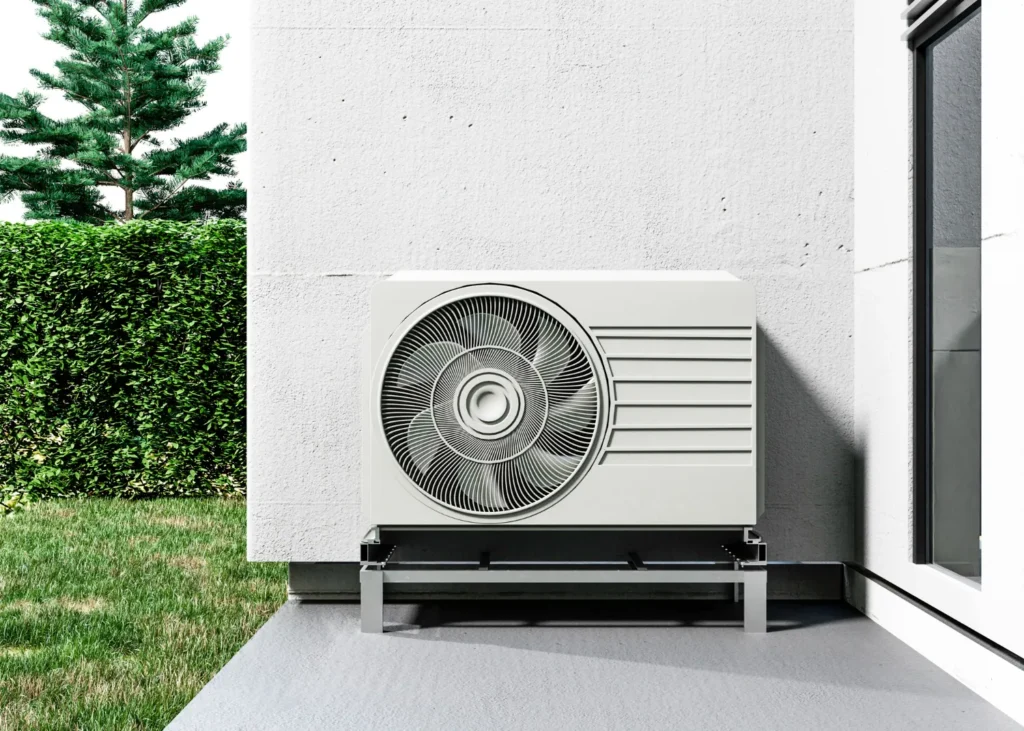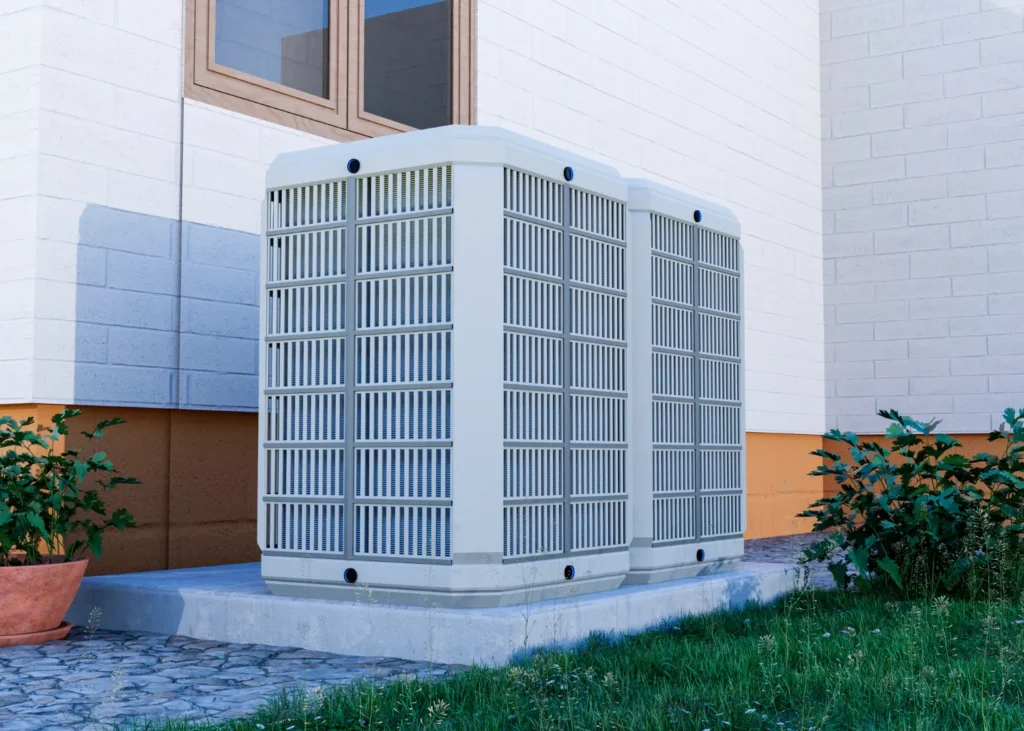It’s no secret that unexpected noises coming from your air conditioner can be a cause for concern. Whether your AC unit is brand new or nearing the end of its lifespan, identifying and addressing these sounds is crucial to ensuring the efficiency and safety of your cooling system. In this top 10 listicle, we will explore the most common reasons why your AC is making noise after it has been turned off.
From banging noises in the building interior to hissing and trickling sounds indicating potential refrigerant leaks, each noise has a specific cause that should not be ignored. Electrical issues such as buzzing and clicking sounds can pose serious fire hazards, while compressor failure may require AC replacement. Stay informed and proactive to keep your AC system running smoothly and quietly

Dirty or Clogged Filters
Air conditioning filters are like the lungs of your cooling system – they need to be clean to function correctly. When filters become dirty or clogged, they can cause many issues, including AC is making noise. One common noise that dirty filters can cause is a loud banging or slamming sound. This occurs when the filters are weighed down by dust and debris, causing changes in air pressure that result in the filters slamming against the grille.
Improper filter sizing or incorrect installation can also contribute to AC is making noise. Ensuring your filters are clean, installed correctly, and not too restrictive is essential. Neglecting to maintain clean filters can lead to noisy operation, reduce the efficiency of your air conditioner, and increase your energy bills.
If your air filters are not the issue, AC is making noise could indicate a more severe problem, such as a loose or detached blower wheel. In this case, addressing the issue promptly is necessary to prevent further damage to your system and avoid costly repairs or replacements.
Regularly checking and changing your air filters is one of the simplest and most effective ways to keep your air conditioner running smoothly and quietly. Follow manufacturer recommendations for filter replacement intervals and maintain a consistent maintenance schedule to keep your system in top condition.
Loose Blower Wheel
The blower wheel in your air conditioner is crucial for circulating cool air throughout your home. A loose blower wheel could be the culprit if you hear loud banging noises inside your HVAC system after it has powered off.
Loose blower wheels can result from wear and tear over time or improper installation. When the blower wheel becomes loose, it can bump into other system components, causing AC is making noise. This issue should be addressed promptly to prevent further damage to your HVAC system.
If you suspect that your HVAC system’s blower wheel is loose, it’s necessary to contact a professional HVAC technician immediately. Attempting to fix this problem alone can be dangerous and may lead to costly repairs. A qualified technician can inspect the blower wheel, tighten any loose parts, and ensure your system functions properly.
Ignoring a loose blower wheel can lead to inefficient cooling, increased energy bills, and even complete system failure. By addressing this issue promptly, you can ensure that your air conditioner continues to operate smoothly and effectively.
Ductwork Dampers Slamming
You may notice loud, jarring sounds from your air conditioning system just after it turns off. These noises could be originating from your HVAC ductwork dampers. Suppose you have dampers installed for central HVAC zoning or manual air delivery customization. In that case, the AC is making noise you hear are likely caused by these dampers swinging shut as the airflow ceases.
Even if you don’t have dampers installed, slamming noises in your ductwork could still be related to the ducts. Like many building materials, HVAC air ducts expand and contract due to sudden temperature or pressure changes. This expansion and contraction can lead to loud clanging, slamming, or banging sounds, especially after the AC unit shuts down.
If you are experiencing these slamming noises in your ductwork, it is crucial to address them promptly. Slight adjustments by a qualified HVAC technician can help mitigate these sounds and prevent any potential damage to your ductwork system.
Air Ducts Expanding
Any loud, jarring sounds you hear just after your air conditioner turns off may not necessarily originate from your cooling equipment. These noises could be entirely duct-related. If you have HVAC air duct dampers for central HVAC zoning or manual customization of air delivery, the slamming noises you hear are likely just your duct dampers swinging shut as airflow ceases.
Even if you don’t have dampers installed, loud slamming sounds could still be related to the ducts. Like many other building materials, HVAC air ducts expand and contract due to sudden and significant temperature or pressure changes. These movements typically occur just after the unit shuts down, frequently resulting in loud clanging, slamming, or banging sounds.
If you are hearing these noises, it’s essential to have a qualified HVAC technician assess the situation. Slight adjustments may help to mute these noises and ensure that the integrity of your ductwork is maintained.
Compressor Imbalance
Now, let’s address a critical issue that could be causing loud banging sounds in your air conditioner: compressor imbalance. This issue is not to be taken lightly, as it can lead to severe damage to your AC unit if left unaddressed.
Compressors are the most costly component in your air conditioning system, and if they fail, it may be time for an AC replacement. As compressors age, they can become imbalanced, causing their refrigerant tanks to bang against the sidewalls during operation and shutdown.
If your air conditioner is over ten years old and you hear loud banging noises coming from the outdoor condenser unit, this could be a sign of compressor imbalance. It is necessary to get this issue checked out promptly by a professional HVAC technician to prevent further damage to your system.
Condenser Fan Issues
One of the most crucial components of your air conditioning system is the condenser fan. This fan is responsible for dissipating heat from the refrigerant compressed in the condenser unit. When the condenser fan encounters problems, it can result in AC is making noise that should not be ignored.
One common issue with the condenser fan is loose or damaged fan blades. If you hear rattling, clanging, or clicking sounds coming from the outdoor condenser unit, it could indicate that the fan blades are loose, bent, or obstructed. These noises are annoying and could lead to further damage if left unresolved.
Another issue that can cause AC is making noise is a malfunctioning motor. The condenser fan motor is responsible for spinning the fan blades to help cool the refrigerant. You may hear grinding, buzzing, or humming noises if the motor is faulty. This could indicate that the motor is struggling to function properly and may need to be repaired or replaced.
One important thing to remember is that if the condenser fan is not working effectively, the compressor can be overheated, which is a critical component of your air conditioning system. This can result in compressor failure, a costly repair that could have been prevented by promptly addressing the condenser fan issues.
If you suspect that your condenser fan is causing unusual AC is making noise, it is crucial to contact a professional HVAC technician to inspect and diagnose the problem. Ignoring these sounds could lead to more significant issues and shorten the lifespan of your air conditioning system.
Electrical Wiring Problems
Your air conditioner should run quietly and efficiently. Still, if you hear unusual noises such as buzzing, clicking, or humming after it’s turned off, you may have an issue with the electrical wiring. These sounds can be a sign of a malfunctioning relay switch, which controls the flow of electricity to the AC compressor. When the relay switch is faulty, it can cause a persistent buzzing or humming sound, indicating a potential electrical problem that needs immediate attention.
Attempting to run your air conditioner with electrical issues is not only a fire hazard but can also lead to the need for AC replacement rather than a simple repair. It’s crucial to turn off the air conditioner and seek professional help to avoid further damage or safety risks.
If you notice clicking or ticking sounds coming from your AC unit even after it’s been turned off, this could also indicate underlying electrical issues. These noises could be a result of faulty wiring connections or damaged components within the system. Ignoring these sounds can lead to more extensive damage and costly repairs down the line.
Concerning electrical problems with your air conditioner, it’s always best to leave the troubleshooting and repairs to trained HVAC technicians. They have the expertise and equipment to safely diagnose and fix any wiring issues, ensuring your cooling system’s continued safety and optimal performance.
Refrigerant Pressure Changes
Once again, unexpected AC is making noise can be concerning, especially after it has been turned off. When you hear hissing, trickling, or dripping noises, it could indicate refrigerant pressure changes within your cooling system.
The refrigerant inside your AC system is under high pressure during operation. When the system shuts down, the change in pressure can lead to hissing sounds. While some hissing is usual, especially in older models, loud and prolonged hissing accompanied by trickling or dripping noises could indicate a refrigerant leak or issues with the condensate line.
Refrigerant leaks are not only a sign of inefficiency in your AC system but can also pose serious safety hazards. Inhaling refrigerant fumes can be harmful to your health, and refrigerant leaks can also damage the environment. Additionally, if your AC is low on refrigerant, it can put extra strain on the system, leading to higher energy bills and reduced cooling capacity.
If you suspect a refrigerant leak or issues with your condensate line, it is crucial to contact a professional HVAC technician immediately. Trying to handle refrigerant repairs on your own can be dangerous and may void the warranty on your AC system. A trained technician will be able to accurately diagnose the issue and perform the necessary repairs to ensure your AC system is running efficiently and safely.
Condensate Line Issues
Despite the importance of the condensate line in the proper functioning of your air conditioning system, it is often overlooked when troubleshooting AC is making noise issues. It is crucial to understand that paying attention to condensate line maintenance can lead to severe problems that can affect the efficiency and longevity of your AC unit.
One common issue with the condensate line is clogging. This can occur due to a build-up of dirt, debris, algae, or mold. When the condensate line is clogged, it can cause a backup of water in the system, leading to leaks and water damage. Additionally, the presence of standing water can create a breeding ground for bacteria and mold, which can affect indoor air quality and pose health risks to you and your family.
Regularly cleaning and inspecting the condensate line can help prevent clogs and ensure the efficient operation of your air conditioning system. If you hear trickling or dripping noises from your AC unit, it may be a sign of a problem with the condensate line. In such cases, it is best to contact a professional HVAC technician to assess the situation and provide the necessary repairs.
Ignoring condensate line issues can result in costly repairs and potential system breakdowns. By staying proactive and addressing any noise-related problems with your AC unit, you can ensure optimal performance and comfort in your home.
Summing up – AC is making noise

So, whether you’re hearing banging noises from the interior of your home, slamming sounds within your HVAC ductwork, or rattling noises at the AC condenser, there are clear reasons why your air conditioner is making noise after it has been turned off. These sounds can be a sign of issues such as dirty air filters, loose components, duct expansion, compressor failure, fan problems, electrical issues, refrigerant leaks, or condensate line problems. It’s essential to address these noises promptly to prevent further damage to your AC unit and ensure it continues functioning efficiently.
By understanding the common causes of AC is making noise and knowing when to seek professional help, you can keep your air conditioner in top condition and enjoy a calm, quiet home environment. Don’t ignore those unexpected sounds coming from your AC unit after it shuts off – instead, take action to resolve the underlying problem and keep your cooling system running smoothly.
FAQ About AC is making noise
Why is my AC making banging noises inside my home?
Banging noises inside your home could be due to a dirty air filter or a loose blower wheel. Make sure to clean or replace your air filter and have a professional check the blower wheel for any issues.
What causes slamming noises within my HVAC ductwork after the AC shuts off?
Slamming noises in your ductwork could be caused by duct dampers swinging shut or by the expansion and contraction of the ducts due to temperature changes. Have an HVAC technician inspect and adjust the duct dampers if needed.
Why do I hear loud banging sounds coming from the outdoor condenser unit?
Banging sounds from the outdoor condenser unit could indicate compressor failure, especially if your AC is over ten years old. Compressor imbalances can cause the refrigerant tanks to bang against the sidewalls. It may be time for AC replacement.
What could cause the rattling sounds at the AC condenser?
Rattling sounds at the AC condenser could be due to loose components within the fan, bent or displaced fan blades, or obstructions. Have a professional inspect and repair any fan-related issues.
Why do I hear buzzing even when the air conditioner is off?
Buzzing noises after the AC is off are often related to electrical issues, such as a malfunctioning relay switch or compressor problems. A professional should address electrical issues to avoid fire hazards and potential AC replacement.
